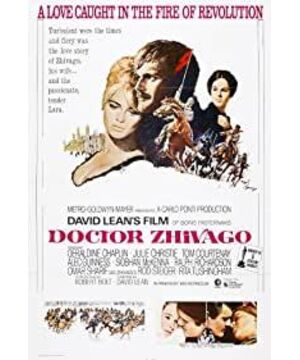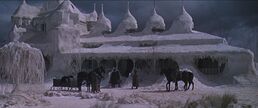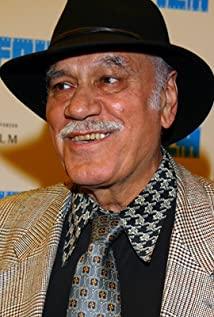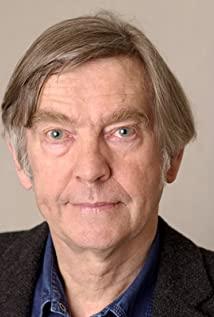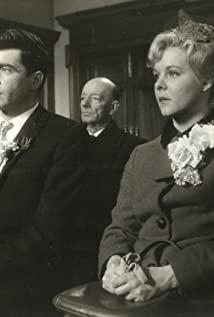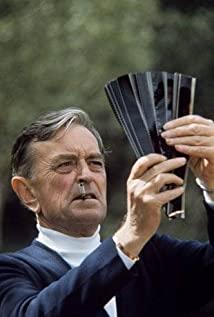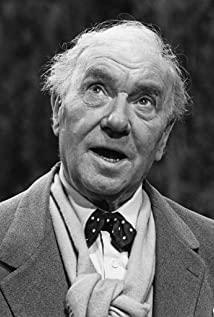BBC: "Doctor Zhivago" is the kind of film that everyone needs to experience once in his life.
I like watching movies. But just like I like to travel but I haven't been to a few places, I like to read but I haven't really read a few books. I like to listen to music but I don't understand music at all.
But since I have watched it from start to finish, I must have some insights. First of all, the next conclusion is that, in my opinion, this is definitely a very good movie.
When it comes to movies, let go of the ones that are really not level. As long as you watch them carefully, you will be able to experience something from them, and they can all be put into the door of good movies with tolerance. However, "Doctor Zhivago" has its unique temperament, which makes it a classic. But in fact, I haven't heard of this movie before. Regardless of whether I have too little knowledge or not, the nearly four-hour film length really surprised me.
This is as delightful as a treasure obtained by chance.
Because inside my head, the bag with the movies I've watched is more substantial.
The film describes Zhivago's parents divorced when he was young, his mother died, and he grew up with the family of his mother's friends. Because of the early death of his mother, he began to feel the impermanence of the world and the shortness of life when he was young, and his meticulous sensitivity to nature and emotion made him a poet. He married Tang Ya, who grew up, and had children. Because of his status as a rich man, he was deprived of his property after the establishment of the Bolshevik regime. In order to make a living, he had to live in a small town in Siberia. He was forced by the Red Army guerrillas because of his status as a doctor. Enlisted in the army and separated from his wife and children. He met Rana on the streets of Moscow. Rana was the daughter of a ready-to-wear shopkeeper. He was entrapped by Komarovsky and shot Komarovsky at the Christmas ball. He was once again witnessed by Zhivago. Zhivago worked with Rana at the frontline hospital of World War I for 7 months and forged a deep bond with each other. The two met again in a small town in Siberia and formed an affair. After escaping from the guerrillas, his wife and children fled to France and never saw each other again. Zhivago lived with Rana. The revolutionary youth of the year have become cruel soldiers with hard-hearted and no sympathy, and they have been purged of power struggles. After the revolutionary youth died, Rana, who was decoyed, was in danger, and Zhivago had to let her escape with Komarovsky, who had become a high-ranking official because of the use of the revolutionary regime. Zhivago and Rana's daughters were abandoned by him during the war. Zhivago suffered a serious heart attack because he buried all his suffering in his heart. When he met Lana again on the streets of Moscow, he tried to catch up and recognize each other. His daughter married a reservoir engineer and lived an ordinary and humble life.
The original wonderful and complicated film, coupled with the super long plot, has a lot of observations. In fact, I only watched it once, so my opinion is superficial, but I think that on the whole it is the sense of reality of this film that moves me.
If you just interpret this film as a romance, I believe you are completely wrong.
Some people say that art is the catharsis of the author's personal emotions, and it is not worth thinking about by others. When we think about it, they laugh. There is a passage: "Quentin Tarantino has a lot of parody and parody of other films, irony and chaotic cross-structure, people call his films postmodern. He said: Great artists always want Stealing the bridge is stealing, not a fucking tribute." I basically agree with the sentence before the first comma (art is the catharsis of the author's personal emotions), and everything behind it is wrong. The emotions and worldview that the author wants to convey, no matter how obscure the expression is, as long as it is worthy of appreciation and can inspire others, it is good. The important thing is not what the author wants to express, but what we can understand from it. Don’t try What ultimate explanation is pursued. No matter how the society reviews this film, I think it is a thoroughly realist epic.
This reality is like the snowfields and birch forests that frequently appear in the lens. Every cell is conveying to people a sense of reality that belongs to Russia. The sense of reality is stable, such as the plains, mountains, and snow of Russia. On this stable continent, the film depicts an unstable background, which is the civil war. Here, don't expect the azure blue sea and sky, the bright petals and the streets full of spring rain. Even the summer garden here is very monotonous. The sun shines from the gray sky and brings the unique warmth of this country. Lean felt as if he was trying his best to obliterate all hopeful elements.
The long shots and music of the film always give me a great shock, and I will cry if I stare at the screen for a second. The Internet says that David Lean is a classicist, and his "Doctor Zhivago" is as magnificent as a classicist drama. The film has a six-minute prelude, divided into scenes, and interludes are added during the intermission. The interludes are based on the oil painting of the birch forest. The curtain is opened again and again, and closed again and again, repeatedly entering and exiting, co-combining the joys and sorrows of the protagonist in the film, with a solemn tone, full of earthly joy and sorrow, and finally able to transcend it. It's like a spiritual baptism. I think this description is just right, especially the overture. I believe that the six-minute overture is suitable for such a super long and meaningful film.
The days in the hut in the village of Valegino are probably the most stable years of Zhivago’s life as a normal family. During this period, there are the most shots in spring and summer, and the shots in winter are not aimed at blizzards or wild plains. It's the beautiful grilles on the windows. I don’t know how many poems Zhivago wrote during this period, but it is conceivable that the poems of this period are the less nutritious part of the poems written in his life. It is a flower watered with blood.
After reuniting with Lana at the Yuriakin City Library, Zhivago frequently ran to tryst with Lana. Once he was about to leave, Tang Ya asked, he lied to buy olive oil. Tang Ya must be aware of it, pulling Zhivago in the garden and telling him that she is pregnant. Zhivago decides to find Lana one last time and break up with him. Lana cried very sad, Zhivago reluctantly left. Zhivago is determined to live wholeheartedly with his wife and the child in her womb. Quite as ironic as O. Henry's "Police and Hymns", Zhivago was robbed by the guerrillas on the way back and became a team doctor. I can't help but feel that there is such a sadness in life many times.
In fact, if you carefully observe and analyze in the film, you will find such meticulous designs everywhere, including such obvious and other hidden ones.
Komarovsky is a supporting role, but he is in the shadows in the film. He is like the evil character in many films, always the source of the negative side of the conflict, the "bad guy". Or like the devil in many people's lives, haunting you forever, of course, it would be too romantic to say this, and there are not too many such situations in life. However, the difference between the film and other movies is that the bad guys did not get the punishment they deserved like the Hollywood ending, but still prevailed and continued to create tragedies for the hero. Tragedy, tragedy, tragedy, constant tragedy, finally ended in tragedy.
Komarovsky was a lawyer before the Civil War, powerful and powerful; after the Civil War, he was supposed to be the object of the revolution, and when he appeared on the camera again, he was actually very low-key and naturally became a member of the revolutionary camp. Senior officials. People can't help thinking about how people should live. The righteous poets will not be able to see their lovers, wives and children, and the guilty dichotomy will take the opportunity of the revolution to go higher. Perhaps most people think that Komarovsky is a brutal existence and Zhivago is great, but for themselves, they don't know who lives better. Is Komarovsky better? Not necessarily, who knows if he is often awakened by nightmares when he sleeps.
He has a classic line in the film: "There are two kinds of men in the world-there are only two. That young man is the first kind. He is noble, he is pure. It seems that the whole world is looking up. In fact, the world is right. He doesn’t care at all. He is the kind of person who can cause distress, especially to women. Do you understand? There is another kind of person who is not noble or pure, but full of energy. Now, at your age It’s understandable to love that kind of young people, but for you, marrying that boy is definitely a disaster. Because there are two kinds of women in the world, and you, as far as I know, don’t belong to the former. You, my darling, are a slut.”
The ending of the story in the memory is embarrassing. Zhivago suddenly died of a heart attack under the revolutionary statue on the street. He desperately stretched out his hand to look at Lana, who was far away. Meet. These seemingly artistic plots are real grief in the reality that belongs to the protagonist, and you can embed yourself in them to experience it. In fact, the protagonist died very low-key, this kind of death tells people the contingency of the world, not a great person has a great way to die.
Tragedy, tragedy, tragedy, constant tragedy, finally ended in tragedy.
I don't want to focus on the ideology and revolutionary background of the film, but it still has an important position. The film conveys the reality of the revolution like people—revolution is basically not Marxism-Leninism, but plundering and killing.
It is worth noting that the film was screened in 1965, when the Soviet Union had not yet disintegrated, and the United States and the Soviet Union were fighting secretly. Whether this film played an ideological attack is not known, let alone viewed from a class perspective. The artist is grossly disrespectful.
It is also worth noting that the film is not playing Russia everywhere, but in fact there is basically nothing about Russia-from the director to the actors, and the lines, all are citizens of the United States of America. There is no doubt about the level of the film, but Americans have always liked to use other people's things for things. Recently, Mr. Spartacus was put on their screen.
It is also worth noting that Pasternak, the author of the original novel "Doctor Zhivago", has been criticized and criticized in China because of this highly praised novel abroad, and finally had to give up because of "Japanese". And won the Nobel Prize in Literature. This is involuntarily equating him with the fate of Mr. Zhivago in his works.
View more about Doctor Zhivago reviews


